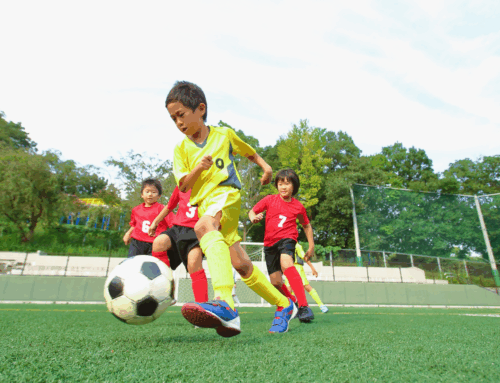Get our exclusive report. Download the iSport360 Club Switching Report Here – For Club Admins, Rec Leaders and Coaches.
Benefits of Youth Sports: More Than Just a Game
Youth sports have long been a cherished part of growing up, offering kids the chance to have fun, make friends, and develop new skills. However, beyond the thrill of competition and the excitement of playing on a team, youth sports provide a wide range of benefits that extend well beyond the field or court. From physical health to emotional well-being, academic success, and lifelong life skills, youth sports play a crucial role in shaping a child’s development.
Physical Health and Wellness
One of the most obvious and widely recognized benefits of youth sports is the promotion of physical health. In an era where childhood obesity rates are rising and screen time dominates much of children’s daily activities, organized sports offer an essential outlet for physical activity. Participating in sports helps kids develop strong muscles, improve cardiovascular health, and enhance coordination and motor skills. Additionally, regular exercise through sports can establish lifelong habits of physical fitness, reducing the risk of chronic illnesses such as diabetes, heart disease, and obesity.
Moreover, engaging in sports encourages kids to develop healthy lifestyles that include balanced nutrition and good sleep habits. Athletes quickly learn the importance of fueling their bodies properly and the value of rest and recovery, helping to instill wellness habits that extend into adulthood.
Mental and Emotional Well-Being
Beyond the physical benefits, youth sports contribute significantly to mental and emotional well-being. Playing sports can help alleviate stress, anxiety, and depression by providing a healthy outlet for energy and emotions. Exercise releases endorphins, which are natural mood boosters, making kids feel happier and more relaxed.
Additionally, sports teach resilience and perseverance. Whether it’s dealing with a tough loss, overcoming an injury, or pushing through a challenging practice, young athletes learn how to cope with adversity and bounce back stronger. These experiences build emotional resilience that can help children navigate challenges in other aspects of their lives, from school to personal relationships.
Social Skills and Teamwork
Youth sports provide an excellent environment for children to develop crucial social skills. Being part of a team teaches kids the importance of cooperation, communication, and teamwork. They learn how to work with others towards a common goal, listen to different perspectives, and resolve conflicts constructively.
Additionally, sports foster friendships and create a sense of belonging. For many kids, their teammates become their closest friends, and the camaraderie built through shared experiences on and off the field helps strengthen their social confidence. Learning to interact with coaches, referees, and opponents also enhances their ability to communicate effectively and respectfully with authority figures and peers alike.
Academic and Cognitive Benefits
Many studies have shown that participation in youth sports correlates with academic success. The discipline, time management, and goal-setting skills acquired through sports often translate to the classroom. Student-athletes tend to develop strong work ethics, improved focus, and better organizational skills, all of which contribute to academic achievement.
Additionally, engaging in sports can enhance cognitive skills such as problem-solving, strategic thinking, and decision-making. Many sports require quick thinking and adaptability, helping young athletes sharpen their mental acuity. These cognitive benefits not only support academic performance but also prepare children for future careers that require critical thinking and adaptability.
Building Character and Leadership Skills
Another significant benefit of youth sports is the development of character and leadership skills. Sports emphasize values such as discipline, responsibility, and accountability. Young athletes learn the importance of hard work, commitment, and integrity—qualities that are essential for success in life.
Many kids also have the opportunity to take on leadership roles within their teams, whether as captains, mentors to younger players, or role models through their work ethic and sportsmanship. These experiences help build confidence and a sense of responsibility, empowering young athletes to take initiative and develop leadership skills that will benefit them in their future endeavors.
Encouraging a Growth Mindset
Youth sports also play a significant role in developing a growth mindset—the belief that abilities and intelligence can be developed through effort and perseverance. In sports, kids learn that progress comes from practice, hard work, and persistence. They experience firsthand that failure is not the end but rather an opportunity to learn and improve.
This mindset is invaluable in all areas of life, helping kids embrace challenges, stay motivated in the face of setbacks, and continually strive for improvement. It fosters a sense of grit and determination that will serve them well in their academic, personal, and professional journeys.
Creating Lifelong Habits and Passion
Finally, youth sports often instill a lifelong love of physical activity. Many adults who played sports as children continue to engage in recreational activities such as running, cycling, or joining local leagues. The positive experiences and habits developed through youth sports lay the foundation for a healthy, active lifestyle well into adulthood.
Additionally, some children discover a true passion for a sport that leads to long-term involvement, whether through coaching, officiating, or even a professional career. Even if they do not continue competitive play, their appreciation for movement, teamwork, and discipline remains with them for life.

Wrap Up!
Youth sports are far more than just a pastime or an extracurricular activity; they are a vital part of a child’s holistic development. From promoting physical health and emotional well-being to fostering social skills, academic success, and lifelong character traits, the benefits of youth sports are profound and lasting. Encouraging children to participate in sports can help shape them into healthier, happier, and more resilient individuals, equipped with the skills and mindset needed to succeed both on and off the field.
So whether it’s soccer, basketball, swimming, or any other sport, encouraging kids to get involved can be one of the best investments in their future. After all, the lessons learned through sports extend far beyond the game—they shape the very foundation of a child’s growth and success in life.
iSport360 is the only app that does it all for youth sports. For more information on what we do, click here.
About the author:
Amy Masters is a sports mom, coach, and club administrator. She has been coaching youth sports for more than 10 years. She started Jr Lions Field Hockey, the youth recreation program for the Hunterdon County community growing it from 40 players in year 1 to 150 players by year 3. A few years later, she saw the love and competitiveness grow then started Omega Field Hockey Club serving NJ and PA players. Before coaching, she was a collegiate field hockey player for Lock Haven University. In her spare time (lol), she is head of marketing for iSport360 and the co-editor of the Youth Sports Survival Guide. The Youth Sports Survival Guide is the largest youth sports newsletter in the world.
Learn more or request a demo of our youth sports software that is helping teams improve communication, organization and player development.
February 19, 2025





